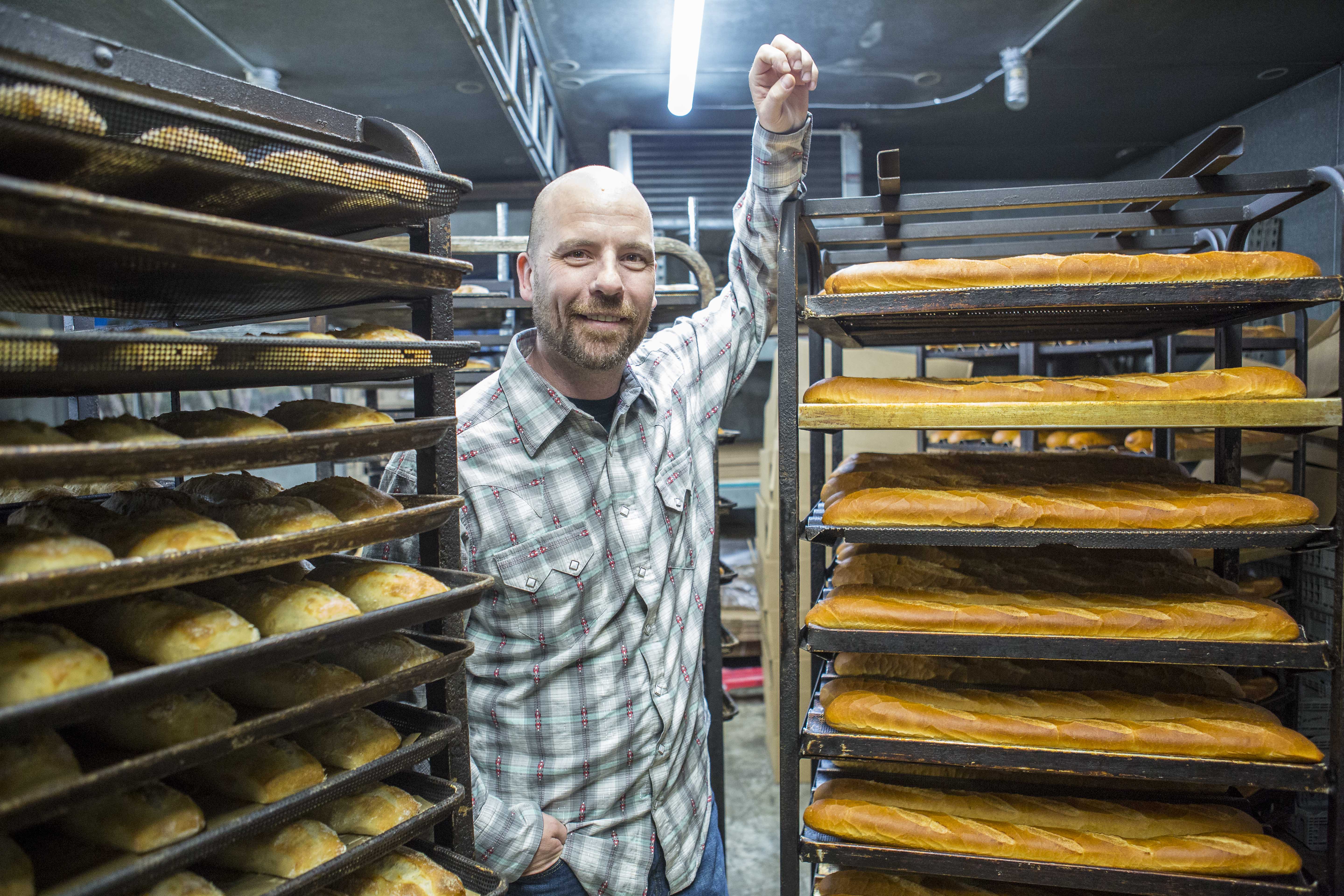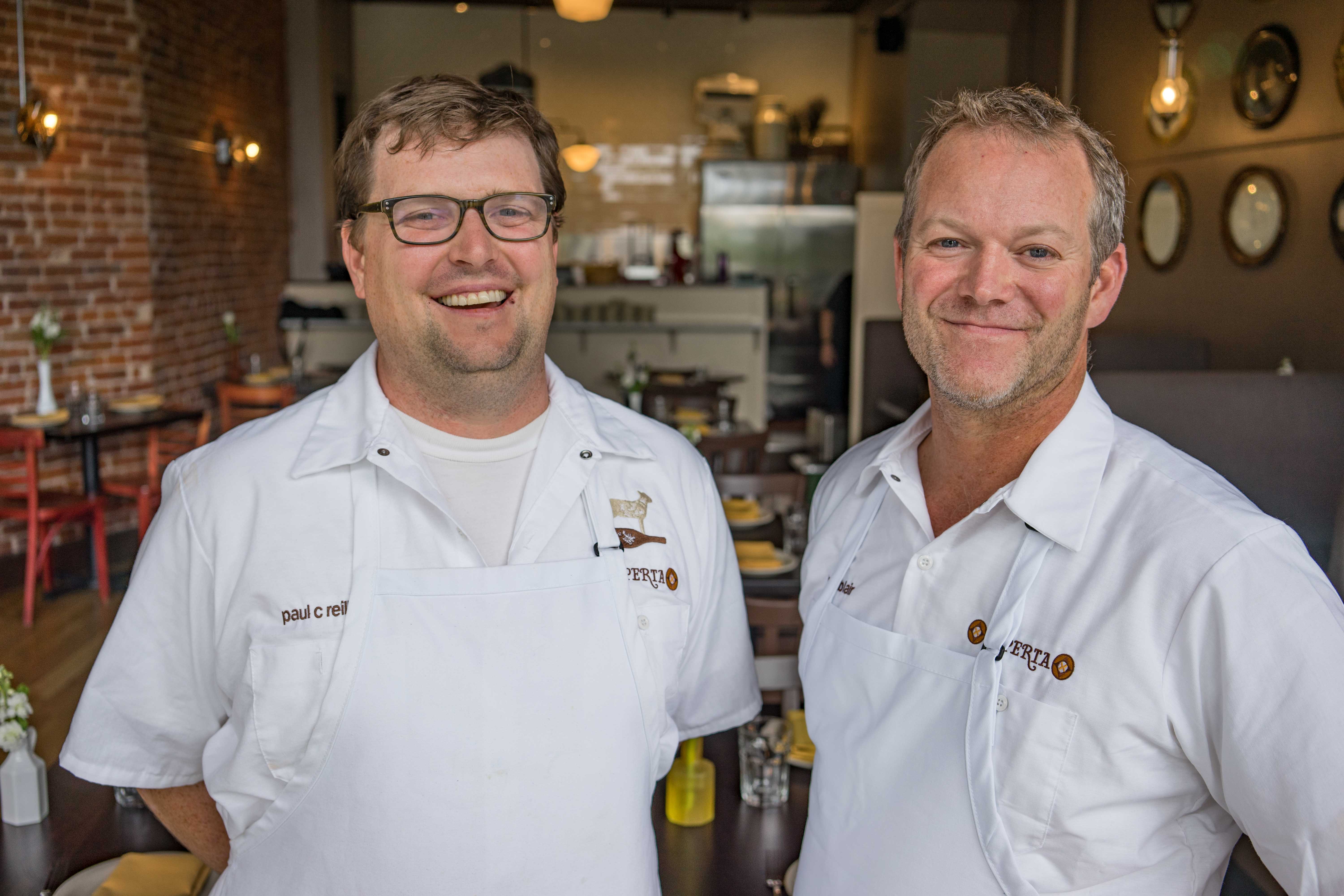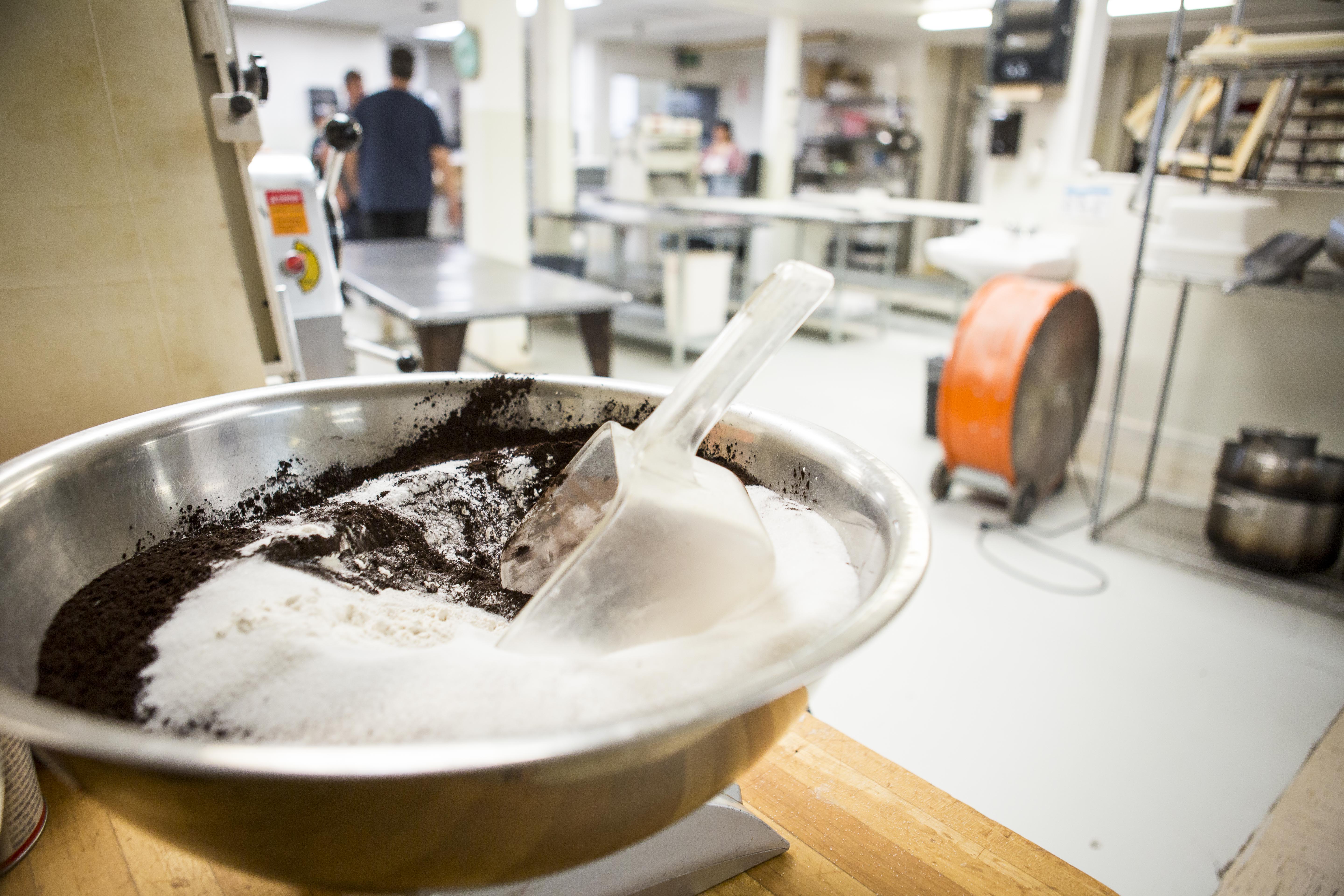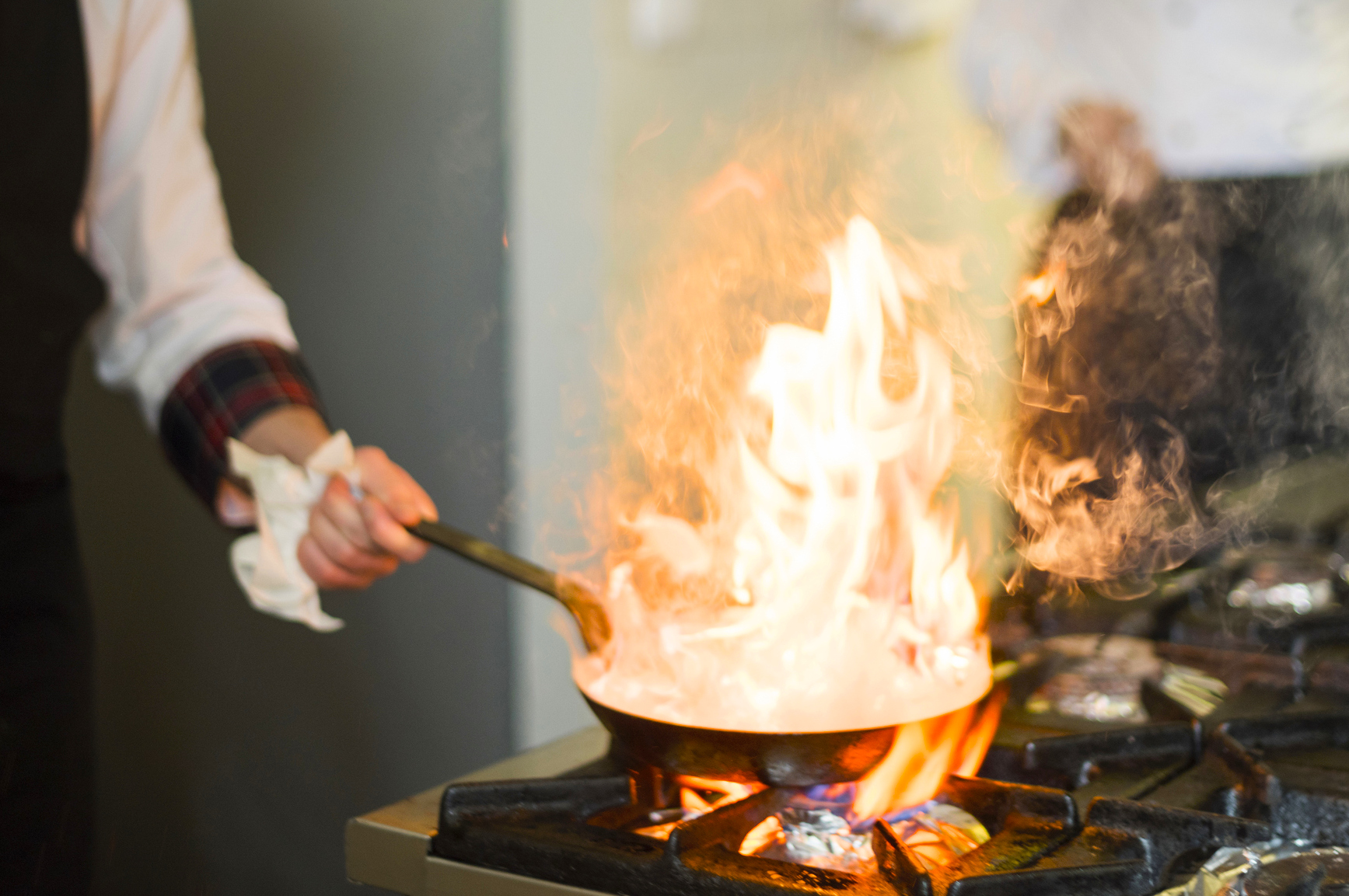—
“I started my bakery because typical restaurant life almost killed me.”
It was the kind of honesty that you hope for, but never fully expect while interviewing a stranger for the first time. Although it was deeply personal, John Hinman delivered those words with the same matter-of-fact tone that he used to introduce himself. Like they were part of his identity now. I sat silently, waiting for more.
“After more than 20 years working my way up in the kitchen, I ended up 37 years old, homeless and sleeping on my mom’s couch,” he said.
—
On the surface, the grueling nature of restaurant work is clear. Without even acknowledging the glaring physical demands, you can find countless articles discussing the effect that restaurants’ high competition, low pay, exhausting hours and “abnormal” schedules have on their employees’ mental health.
But, it wasn’t enough to realize it and read about it happening in New York, London, Chicago and Boston. I needed to know how it’s happening at home in Denver.
How can a hospitality-based industry — one that’s designed to bring joy, reception and relaxation to customers — cause so much turmoil within its staff?
After ruminating for weeks, I decided to just ask, overextending the offer to my network of Denver chefs — from restaurant owners to line-cooks — hoping to find even one or two people who were willing to open up and discuss this long-taboo topic. I expected crickets, but I was instead met with 46 messages in two days.
I started with John Hinman.
“What Makes You Great Also Breaks You”

Before opening his namesake bakery, Hinman worked as a pastry chef in Colorado restaurants for more than 20 years with Secret Sauce (owners of Vesta, Ace Eat Serve, etc.), Big Red F (owners of Jax, Post Brewing Company, Lola, etc.), Marczyk’s Fine Foods and more.
But, the demand from owners, stress from coworkers and need for success caught up with him. For Hinman, the pressure to perform manifested into alcoholism. He cited two major moments that forced him out of the kitchen and into recovery, but looking back, he said he can now see more of the small, moving pieces that slowly chipped away at him.
“Alcoholism will always be there, but it manifests itself in different forms today,” Hinman said. “The compulsion to drink is gone, but now it’s about not being a jerk… like stomping, zinging my phone across the room or wanting to go and hide.”
Other chefs like Brandon Foster agreed. Foster explained that you’re so passionate about the work you’re doing that it can be hard to put it down when you need to, especially when you’re already sacrificing so much for it.
“You work so hard that it gets addicting. The camaraderie is what draws you in,” said Foster, now executive chef at Project Angel Heart. He too has spent almost 20 years working 60 to 70 hours per week in kitchens across Denver.
“It’s fun for awhile, and it’s really easy to get sucked into that,” he added. “The adrenaline kicks in, and it’s hard to turn off when your shift ends, so you go out. You end up working, drinking, sleeping (maybe) and waking up to do it all again. A lot of people fall into that routine, and soon you realize it’s all you’re doing.”
Substance abuse and addiction are common, but it’s not the whole picture, though.
“The culture of substance abuse — specifically alcohol — plays into this, but that’s just the obvious part,” explained Paul Reilly, executive chef and owner of Beast + Bottle and Coperta. “What’s not talked about is the self-driven, critical culture that comes with it. Social media and online reviews have pushed pressure to another stratosphere. You’re basically standing naked in a room of people every night asking them to judge you.”
Most agreed that drinking or drug use is typically the symptom of a larger issue — an attempt to wind down and “turn off” the pressure and criticism coming from others and yourself. And, while the criticism increases, so does the competition. It’s a high-volume, high-passion industry, with many people vying for the same few coveted spots. It can come down to who’s willing to withstand or sacrifice the most for it.
Most of this boils down to a culture where most everyone is struggling, but no one is willing to admit it.

“Even if you’re struggling, it is something that people choose not to discuss because there’s this competitive atmosphere,” Foster explained. “When you’re coming up as a young chef, the last thing you want to do is admit that you’re struggling when you aren’t sure if anyone else is.”
And, as you move up the ranks, it doesn’t seem to get better.
“As an executive chef or owner, you wear many hats and everyone relies on you,” Reilly added. You’re the chef, coach, cheerleader, therapist, teacher, leader and face of the restaurant. When you’re trying to be all of those things to everyone, who is doing that for you?”
Eric Seabolt, executive chef at Carmine’s on Penn, explained that maintaining your own side of your support system — with outside-of-work family and friends — is nearly impossible if you want to keep up with the demands of the job. Not only are the hours different, they’re usually longer.
“At work, I thought if I’m not growing, I’m dying,” Seabolt added. “I was working 85 hours a week sometimes — and that’s not sustainable. The older I get, the more I realize that working so much isn’t a badge of honor. I missed family gatherings because I wouldn’t request important days off. I’ve been engaged twice because I couldn’t put it down.”
That quest for growth got its hooks in Hinman too, who also hasn’t married or started a family. He said that outside of his addiction, the root of the problem was his unquenchable thirst for perfection inside the kitchen. His love for the craft made it impossible to leave.
“What makes you great also breaks you,” he explained. “Think about the meticulousness that goes into crafting a perfect plate of food. If someone can do that to a plate, imagine what they’re doing to themselves.”
Hard to Stay, Harder to Leave

Perhaps it’s easy to read about this stress and offer a simple solution — if you don’t like it, quit. If you can’t handle it, leave.
But, it’s not black and white. From the chefs I spoke to, I learned that the only thing harder than doing it is not doing it. The job pulls you in and you don’t see a way out because your whole identity is wrapped up in what you do for a living. Without it, you’re lost.
Ryan Leinonen started in a kitchen washing dishes at 15, moving his way up to work for Hotel Boulderado, The Kitchen, Root Down and Colt & Gray — eventually opening his own restaurant Trillium in 2011 and selling it to leave the industry in 2015. After the sale, he went to the doctor for the first time in 10 years, and the doctor said his stress levels were pushing him closer and closer to a dire health emergency.
“It felt like I was digging a hole and someone else was standing at the top, kicking the dirt back into the hole,” Leinonen said. “But, as stressed as I was with it, I was lost without it. Ever since I was 15, I’ve only wanted to open and own my own restaurant. When it was over, I didn’t know what to do.”
After getting some help from family and friends, Leinonen found purpose in his new role as a contract consultant for Sterling Rice Group. It has allowed him to still work in the food industry, but this time, on newer, more private terms.
“I don’t feel as watched anymore. There are fewer people to impress all of the time which helps,” he explained. “Chefs are addicted to that fast pace and glory that comes with a busy restaurant. I do miss some of that, but I’ve been able to rechannel that energy into something else.”
That energy can be hard to rechannel, especially when it’s been devoted to something you love so much for so long.
“It’s hard,” Hinman added. “You have to let go of what you think you’re crushing and admit it’s crushing you. I got sober seven years ago, but the second year of sobriety I had 11 different jobs, just trying to do anything but go back to the kitchen… but I missed the creativity and came back in a way I knew I could handle.”
Hinman said he’s found balance working near and with restaurants but not in them. By opening his bakery, he can control the hours, even allowing his employees to maintain a reasonable schedule and not have to miss what he called “normal, human-life stuff.”
Solutions From Within
For the chefs that aren’t willing or ready to put the apron down, other solutions must be found to keep the employees healthy and the industry afloat. Many chefs offered suggestions for progress, all with a few common themes.
Find Life Outside of the Kitchen

“One of my first mentors said this to me, and I want everyone to hear it,” Foster said. “He told me — ‘You’re going burn out. More than once. It’s the nature of the business. But, it’s about how you rebound from that. You have to take better care of yourself outside of work. Make sure that you’re fulfilling life outside of the kitchen.’”
For others, Colorado has been a place to do just that. Seabolt explained that moving here was his attempt at rediscovering life beyond his work.
“I have found more balance by moving to Colorado,” he said. “I’m told not to work a lot by my bosses, which is new. I’m hiking, going to the gym, training for a half marathon. Really just finding ways to set goals and push myself in my personal life so I can remember that my worth isn’t only measured in the kitchen.”
Reilly agreed that he wishes it was something that was discussed more, especially early on in a chef’s career.
“I wish we were talking about this years ago,” he said. “I wish I had someone give me this advice a long time ago, but I’ll say it now… It comes down to three practices — exercise, meditate and be present. When you do have time to be away from the restaurant, you need to be 100 percent in whatever that is. You must be present in your moments away.”
Encourage Institutional Change

On the local level, almost every chef I spoke with pointed to Josh Wolkon as the leader of a healthy living movement within Denver restaurants. Wolkon owns Secret Sauce, the restaurant group behind Ace Eat Serve, Steuben’s and Vesta. For more than 15 years, Wolkon has led the staff through a “Healthy Living Week.”
“Initially, we just wanted to shift the industry’s attention away from alcohol,” Wolkon explained. “The first year, we simply didn’t serve alcohol to staff at Vesta, and we encouraged people to try and stay sober for the week. It’s definitely grown since then.”
Now, Healthy Living Week at Secret Sauce includes a cleanse, group workouts, healthy family meal before shifts, farmer’s market stipends and a free, year-round Employee Assitance Program. Last year, more than 175 people participated in at least one of the activities or programs.
“I just wanted to bring wellness to the forefront of the conversation,” Wolkon said. “It happened naturally as I got older. You see how people end up in this business. If you want to have staying power, you have to find a better balance.”
That’s not to say Secret Sauce is the only group making changes. Wolkon said that many other owners have reached out for advice on starting programs of their own.
Chefs With Issues — an organization run by Kat Kingsman — has a powerful national platform with a private Facebook page for chefs to discuss their struggles and the changes that are needed to prevent them for future generations. They’ve even partnered with Unilever to launch Fair Kitchens — a “code of conduct” restaurants can download and implement to build a healthier culture within the kitchen.
But, most of all, chefs voiced the value in just taking the first step — being open with others about what you’re facing.
“I have a pretty good network of people that I pick up the phone and call, but it’s hard to do sometimes because that phone looks like it weighs 1,000 pounds,” Hinman said. “Hopefully, something [like this] can lift that weigh a little… The solution today lies in the pause, turning and helping someone else. Give yourself a second to find a solution, ask for help or advice. That is the hardest thing to do.“
After working on this article, John Hinman and I have started a local group for restaurant workers to meet and discuss these issues. For more information on Mile High Hospitality Hazards and the first meeting on June 11, click here.
If you feel you are in mental crisis, please call the National Suicide Prevention Lifeline. It is a free, 24-hour hotline, at 1-800-273-8255.






This is an amazing article. Thank you and everyone involved for this.
Such a great read.
I have been in this industry since I (also) was 15. Worked all over the country, always making work first and everything else comes after. If it ever does at all. Work is life, or always has been. Short version, is ending up in rehab, multiple seizures, recovering alcoholic, two failed marriages, etc… But had a hell of a great time and did many amazing things and met some amazing people.
Happy now, wonderful son that I’m so happy to still be alive and healthy to be with him. And happy and sober at work.
Thank you again for this article
Chris Hansen
Alex, this is so right on. Whether is starts out with the stress of searching for perfection or wanting to be accepted in the restaurant world, it is amazing how widespread this problem is. As I was reading your excellent article, I kept thinking to myself, “these guys need a program or meeting” and now they will have one. As you know, we lost our restaurant to this issue and it took me another 21 years of addiction to get it, and get sober. I wish what you are starting had been around in the early 80s. I am hoping that many, many people will be helped into seeing what they are doing to themselves. I am just so impressed with you and yur article.